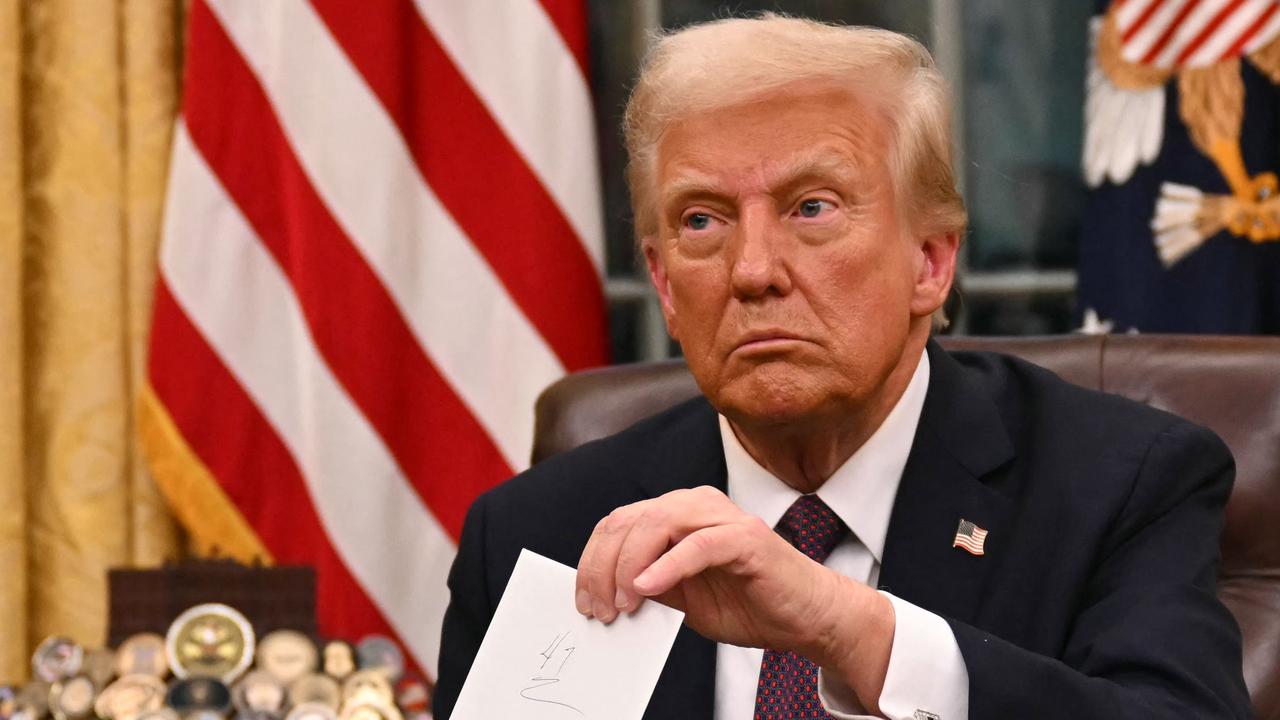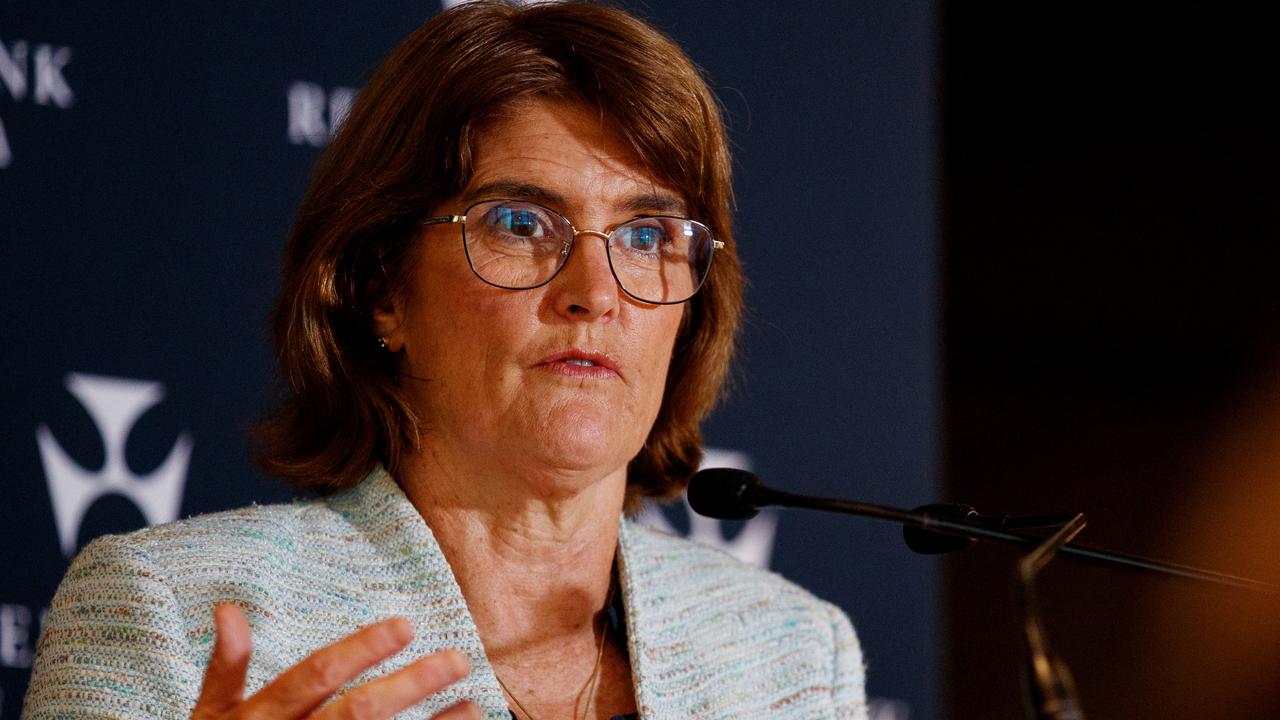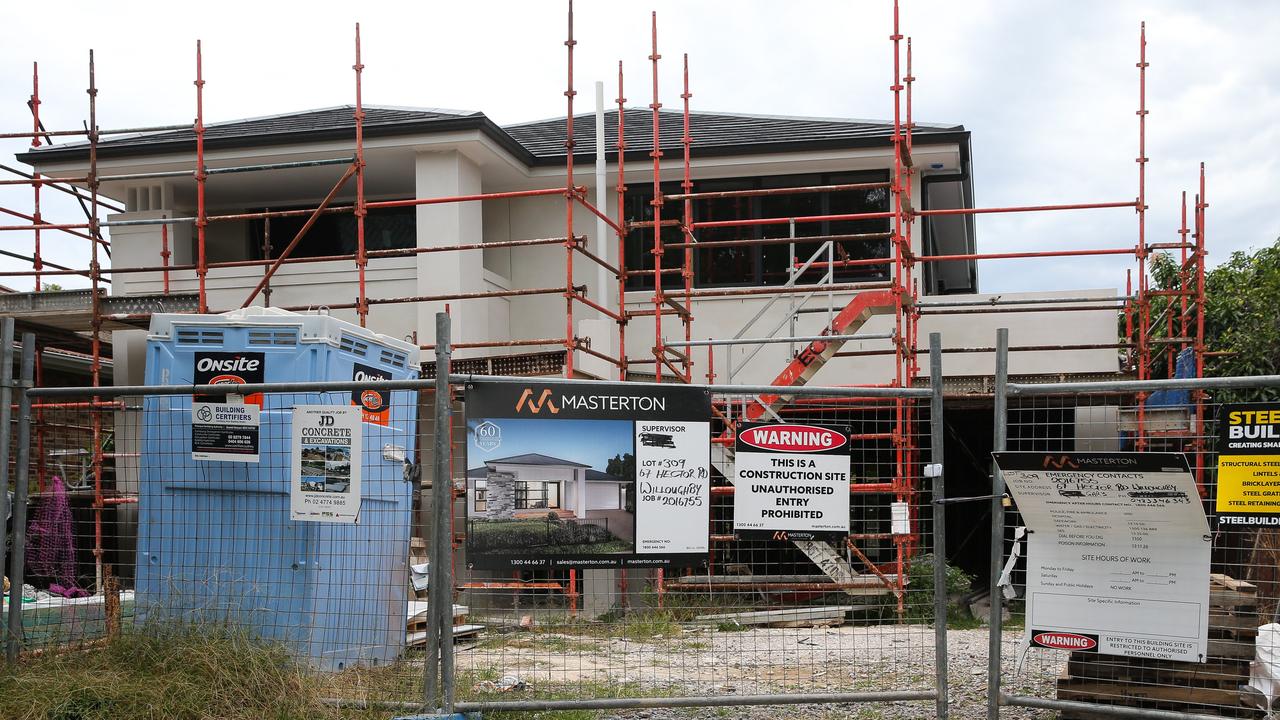RBA unlikely to raise rates in June
THE official interest rate will almost certainly be left unchanged at the next Reserve Bank board meeting in two weeks.
THE official interest rate will almost certainly be left unchanged at the next Reserve Bank board meeting in two weeks. It will definitely not be increased.
The different wording in the two sentences is to make the subtle - too subtle? - point that the only, very remote, possibility of a change in the rate is a cut.
Now this is not to suggest that a cut is even remotely likely. Simply, that there is no prospect of the RBA being 'forced' by developments over the next two weeks to hike.
There is no way the RBA could be ambushed by 'surprising good news.' Like an even boomier China, like Europe's debt problems melting away. All in just two weeks. Such that it would have to backtrack on the clear message of the minutes that the official rate was now on hold.
However remote, there is though some possibility of the opposite. That it - and the rest of us - could be ambushed by extraordinarily bad news. Hence the qualifier. But only in one direction.
This is also critical in assessing what might happen to rates beyond June, and in particular in the first instance, at the RBA's July meeting.
The reasonable base case is that the RBA is on hold through both June and July, until it gets to look at the next CPI numbers ahead of its August meeting.
The RBA did not hike at its first meeting back in February because the CPI for the December quarter released the previous week showed a low 0.6 per cent underlying quarterly inflation rate.
Equally, it did hike two weeks ago because the underlying inflation number for the March quarter spiked up to an unexpected 0.8 per cent - crucially, above the top of the RBA's 2-3 per cent annual inflation target range.
In that sense the next June quarter inflation number could 'settle' the argument. Was the December quarter's 0.6 per cent a rogue low number? Or was the March quarter's 0.8 per cent a rogue high number.
That's to say if the June quarter came in at 0.6 per cent - subject to 'events' - the RBA would probably pause again in August. If it came in at 0.8 per cent, or higher, the RBA would hike.
So it seems obvious that it will sit on its collective hands through June and July to see the inflation data. Except for those 'events.'
While possible 'events' can work in only one direction over the next two weeks, that's not true over the longer period of seven weeks to the July meeting.
Over that extended period we are back to the possibility of the RBA being 'ambushed' in either direction. That it could see an even 'boomier China', that Europe's problems if not melt away at least get cauterised, that the US economy starts to really pick up steam.
That's to say the RBA could read some or all of that - plus what was happening in the domestic economy - as forcing it not to wait for the June quarter inflation number. And even, that the data would no longer be the determinate.
Again, this is not to suggest this is likely; simply to caution against the casual assumption that the RBA has 'committed' to keeping rates on hold at least until August and indeed even beyond.
Yes, the minutes delivered the very clear message that the RBA had now completed what might be termed Stage One of the post-GFC rate moves. Getting rates back to normal or average.
Although I would add that but for Greece and the broader uncertainty, 'average' could have stretched to another hike.
The minutes said explicitly: target reached. If that wasn't clear enough, then came: "members felt that this (the hike they were endorsing) would leave monetary policy well placed for the present."
This and the following sentence, "the board therefore supported another rise in the cash rate" had a bit of a flavour of the board saying to RBA management: that's it for now, folks. And assuming it is, here's our support for this (last) hike.
That would be going too far. Board and management are clearly of one mind. To the extent the words chosen might suggest a sliver of difference, it probably reflects what might be termed the 'Zsa Zsa Gabor or Elizabeth Taylor 8th husband problem.'
Trying to make, in this case, the words a little different from every other set of monthly minutes.
So again it would be a big mistake to assume that the board will act as a drag on any management push for higher rates. Or more simply that the RBA 'must' wait for the June quarter inflation data - although right now that is the most likely outcome.
On one level that data will be all-important. But by then even more importantly the RBA will have a much better idea of how the various conflicting forces in both our domestic economy and the variety of global economic and financial regions are developing.
The only certainty is: no rise in two weeks.



